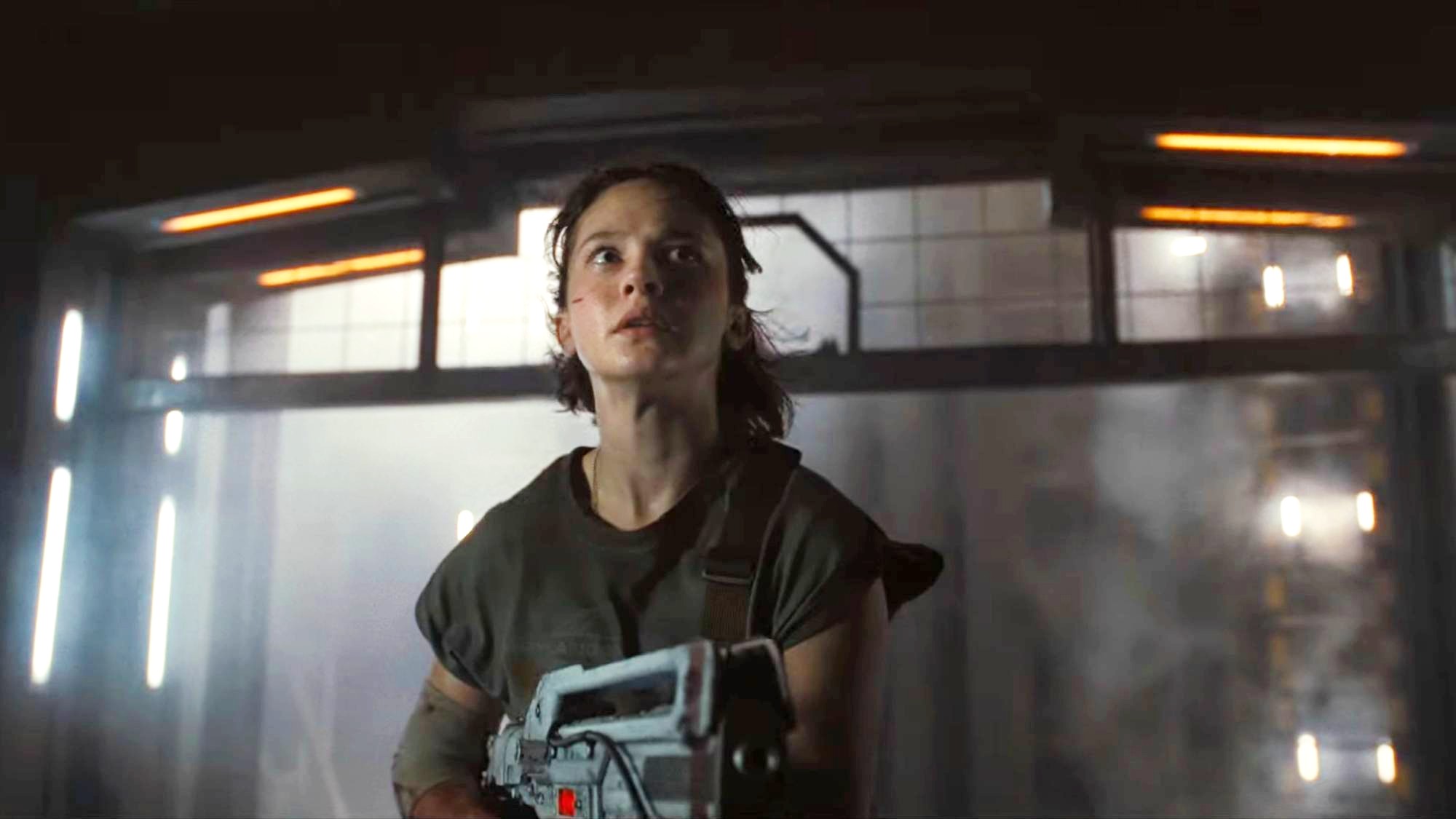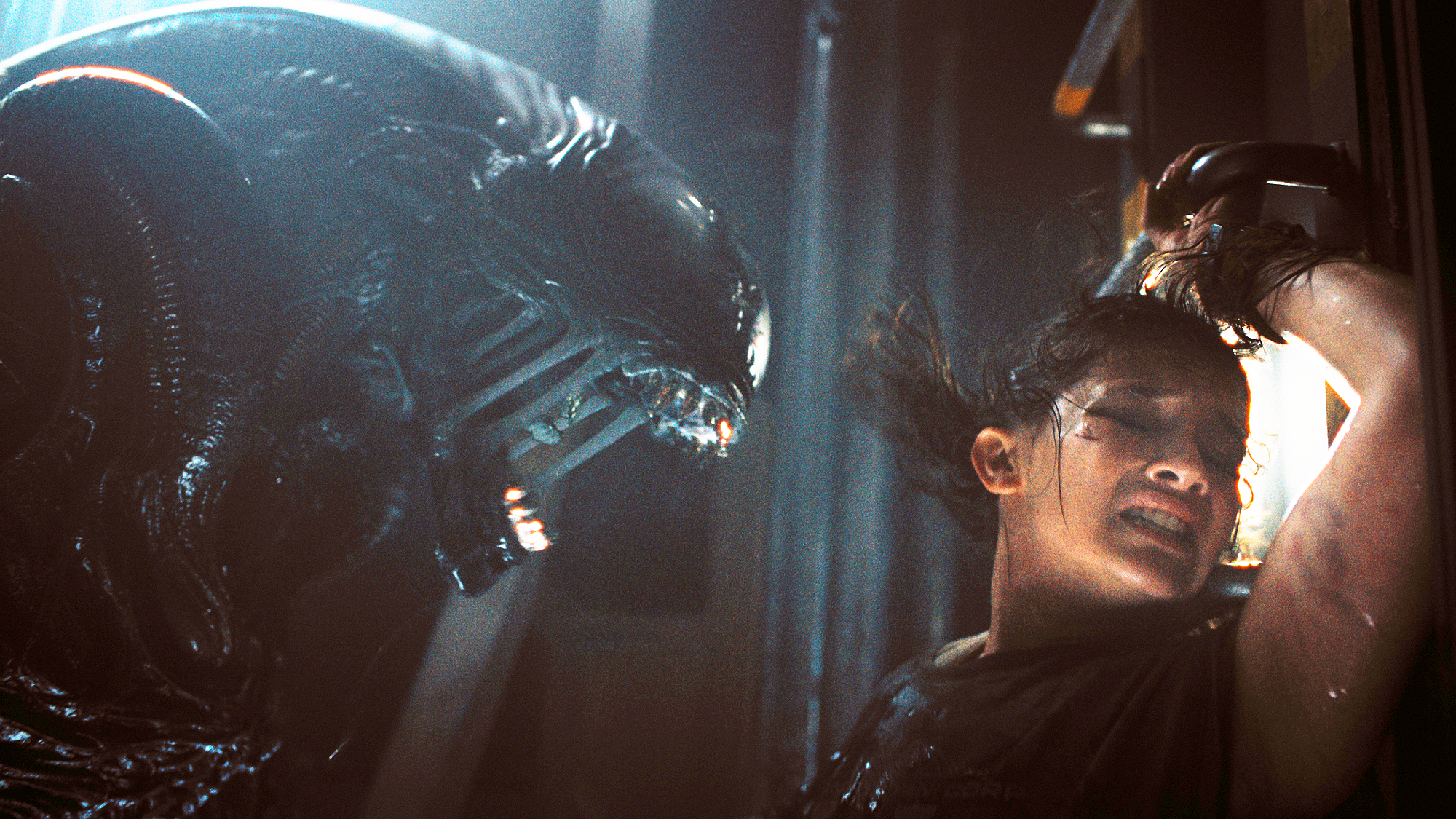'Alien: Romulus' offers more of the same xenomorph action — and that's a good thing

At their best, the movies in the “Alien” franchise have represented distinctive visions from talented filmmakers, and not just rote brand extensions. Directors Ridley Scott, James Cameron, David Fincher and Jean-Pierre Jeunet all brought their unique perspectives to the original four “Alien” movies starring Sigourney Weaver, and Scott explored his particular philosophical interests with his prequels “Prometheus” and “Alien: Covenant.” Even the first “Alien vs. Predator” movie is clearly the work of lowbrow action auteur Paul W.S. Anderson.
Judged by that standard, director and co-writer Fede Alvarez’s “Alien: Romulus” (opening Friday in theaters) could be regarded as a disappointment. Although it’s mostly a standalone installment, “Romulus” is essentially a remix of the franchise’s greatest hits, reinterpreting themes, plot points and even lines of dialogue from previous “Alien” movies.
It’s an impeccably crafted sci-fi horror movie that sustains high levels of suspense and intensity for almost its entire running time, but it’s also a bit hollow, functioning as a reflection of the bolder films that came before it.
‘Alien: Romulus’ presents a familiar but engaging story
Alvarez and co-writer Rodo Sayagues emulate Scott’s original 1979 “Alien” with another story about a handful of working-class spacefarers stranded on a ship with the dangerous alien creature, set 20 years later. In this case, it’s a group of friends who’ve been working on a remote mining planet, all in debt to the franchise’s overarching evil corporation, Weyland-Yutani.
After being denied her off-planet transfer to a more hospitable colony, Rain Carradine (Cailee Spaeny) agrees to help her friend Tyler (Archie Renaux) with a scheme to salvage necessary equipment from an abandoned Weyland-Yutani outpost so they can make the trip on their own.
For the plan to work, Tyler needs Rain’s “brother,” a slightly malfunctioning android she calls Andy (David Jonsson), who can interface with Weyland-Yutani systems. Isabela Merced, Spike Fearn and Aileen Wu play the rest of Tyler’s crew, who take a mining vessel up to the derelict station and discover that it may not be as abandoned as it seemed. Anyone who’s seen any “Alien” movie will be able to guess what happens next, as the characters encounter the familiar facehuggers that implant eggs in people’s chests, gestating the full-grown xenomorphs.
Trapped on the station as it hurtles toward an asteroid belt, Rain and her friends must evade the aliens and escape with their lives. That mission is further complicated by the other surviving inhabitant of the station, an android named Rook who looks exactly like Ian Holm’s Ash from “Alien,” and is played by Daniel Betts with “facial and vocal reference” from the late Holm. Rook carries on the franchise tradition of so-called “synthetics” with sinister motives, and he co-opts the simple-minded Andy, who suddenly becomes equally cold and calculating.
Get instant access to breaking news, the hottest reviews, great deals and helpful tips.
‘Romulus’ recycles and reinvigorates the ‘Alien’ formula

Alvarez and Sayagues freely borrow elements from throughout the “Alien” franchise, from the cramped location of “Alien” to the giant guns of “Aliens” to a particularly iconic shot from “Alien 3” that has already been revealed in the trailer. The final act makes surprisingly extensive use of a plot device similar to the much-maligned (but underrated) “Alien: Resurrection,” with similarly unfortunate results.
Before that, though, Alvarez puts his own stamp on many of the recognizable aspects of the franchise, playing with expectations to make the aliens just as terrifying as they were when they were first introduced.
The facehuggers, which have often just been precursors to the real horrors, are scarier than they’ve ever been, swarming toward the characters like hordes of alien spiders, covering ceilings and swimming through shallow flooded corridors. Likewise, Alvarez finds new ways to make the xenomorphs’ acidic blood a threat, including in a harrowing zero-gravity sequence.
Although there’s a level of predictability that now comes with any “Alien” movie, knowing what dangers the characters will face before they do increases the tension.
‘Alien: Romulus’ delivers scares and heartbreak
As he did in his breakthrough movie “Don’t Breathe,” Alvarez puts together a cast of flawed but endearing outcasts who take a big risk for what they think will be a big reward. While some of the characters are clearly just xenomorph fodder, Spaeny makes Rain complex and sympathetic, and her relationship with Andy offers a different angle on the franchise’s depiction of synthetics.
The early scenes on the mining planet highlight their connection, and there’s emotional resonance to the sacrifices they’re called on to make later in the movie. With her recent performances in “Priscilla” and “Civil War,” Spaeny has emerged as a major talent, and “Romulus” provides more proof of her abilities.
It’s an excellent showcase for Alvarez as well, building on the sense of place and the expert navigation of dark, confined spaces that he pulled off in “Don’t Breathe.” As he did in his 2013 “Evil Dead” remake, he demonstrates reverence for the source material without being constrained by it. “Romulus” takes place after Scott’s prequel films, but it looks more primitive, in line with the grimy, low-tech design of “Alien” and “Aliens.” There’s still plenty of CGI, but it’s balanced by extensive use of practical effects, giving the movie a sense of weighty, tactile reality.
The ultimate test of any “Alien” movie is whether it can jolt and unnerve the audience, and in that sense “Romulus” is a complete success. It may lack the creative innovation of the original films or the grand ambitions of Scott’s prequels, but as a slick, relentless horror movie, it delivers exactly what it promises.
More from Tom's Guide
- How to watch the "Alien" movies in order
- I’ve seen 42 movies in theaters so far this year — here’s the 5 best and 5 worst
- 7 best movies you missed in theaters in 2024 (so far)

Josh Bell is a freelance writer and movie/TV critic based in Las Vegas. He's the former film editor of Las Vegas Weekly and has written about movies and TV for Vulture, Inverse, CBR, Crooked Marquee and more. With comedian Jason Harris, he co-hosts the podcast Awesome Movie Year.
 Club Benefits
Club Benefits






